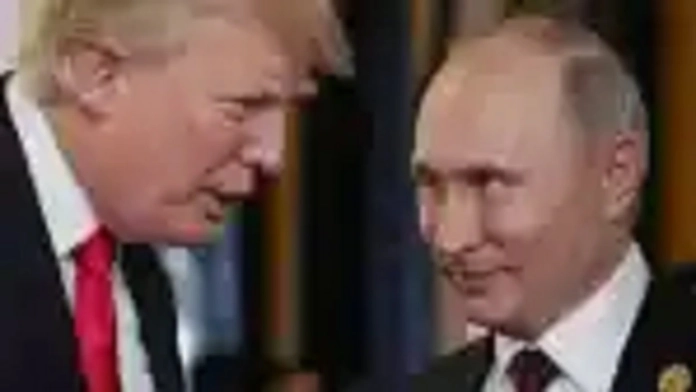As the war in Ukraine drags on and peace talks struggle to gain traction, a report from Bloomberg has reignited debate. According to the agency, Vladimir Putin is reportedly exploring the possibility of using frozen Russian assets in the United States to purchase Boeing aircraft. The idea, though unofficial, is raising questions about a possible behind-the-scenes deal between Moscow and Washington — one potentially brokered by Donald Trump.
So far, no formal agreement has been confirmed. However, discreet contacts between both parties are believed to have included the possibility of unlocking a portion of Russia’s frozen funds — estimated at $5 billion in the U.S. and $280 billion globally — to buy Boeing jets. Officially, Washington maintains that a ceasefire must precede any deal. Yet the specific wording — “ceasefire” rather than “peace treaty” — hints at potential diplomatic flexibility.
For Russia, even a partial unfreezing of assets would provide a much-needed economic boost. The country’s civil aviation sector has been crippled by Western sanctions, particularly the ban on acquiring Boeing and Airbus spare parts. Russian airlines have resorted to cannibalizing grounded planes to keep others flying.
On the American side, Boeing is also struggling. Plagued by safety scandals and a sharp drop in international orders — especially from China — the U.S. manufacturer has a large inventory of undelivered aircraft. A sale to Russia, even via intermediaries, could ease that burden.
A diplomatically risky move
Any such arrangement would be fraught with political risk. It could weaken international pressure on Moscow without a comprehensive peace deal in place. Western governments, especially in Europe, currently channel interest earned from frozen Russian assets into Ukraine’s war effort. Touching the principal, however, remains taboo — both legally and politically — given the potential implications for global financial stability.
If realized, the move could fracture Western unity and raise doubts about the legitimacy of “commercial diplomacy” as a substitute for a genuine political resolution.
Some analysts suggest Putin may be using the idea of a Boeing deal to buy time, weaken international cohesion, and inject liquidity into an economy battered by sanctions and falling oil revenues. For Donald Trump — who has often criticized the cost of U.S. involvement in Ukraine — the logic may appear straightforward: exchange peace, or at least a ceasefire, for selective sanctions relief.
Yet the danger is clear: allowing Moscow to recover assets without firm guarantees could undermine years of diplomatic and military efforts.
According to U.S. officials, no agreement has been reached. Washington’s stance remains unchanged: no lifting of sanctions without a clear path toward peace. Still, recent statements from the Kremlin citing a “potential for stabilizing economic cooperation” indicate Moscow is serious about exploring this option.


